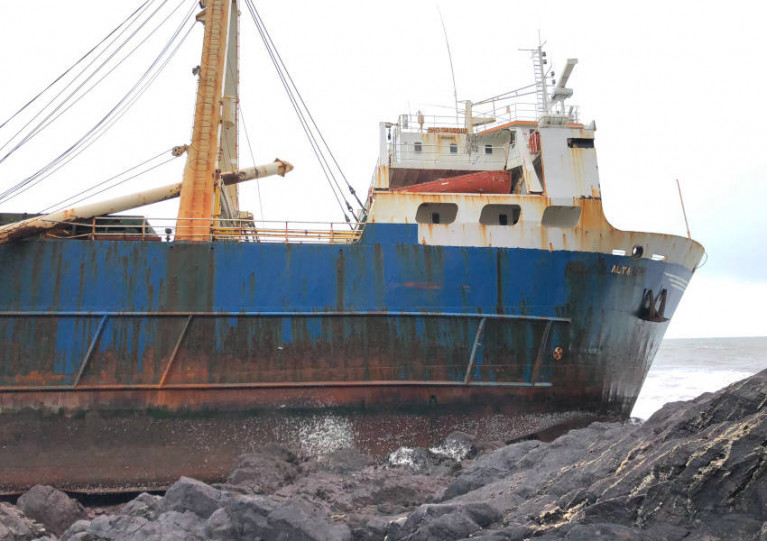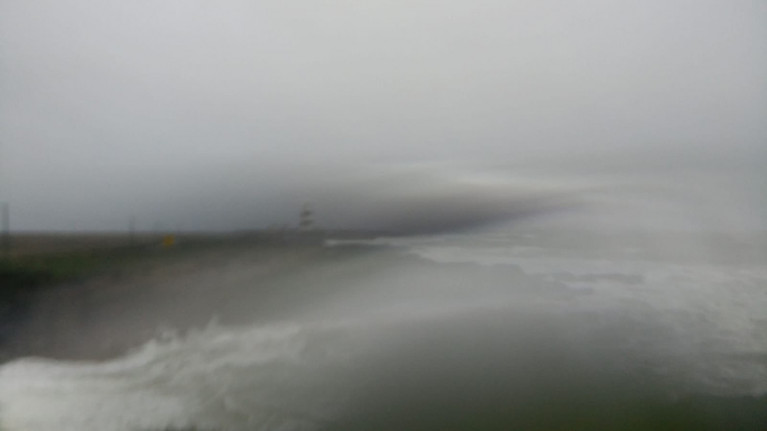Displaying items by tag: Storm Dennis
Abandoned Cargo Ship ‘Alta’ Runs Aground On Cork Coast
Ballycotton Sea Adventures is reporting that a cargo ship abandoned at sea for more than a year has run aground on the Cork coastline during Storm Dennis, writes Tom MacSweeney.
An initial Irish Coast Guard inspection of the 'ghost ship' from the air reports no signs of pollution so far from the 80-metre vessel, which lies three miles west of Ballycotton.
The Irish Coast Guard's Twitter account posted video recorded from its Rescue 117 helicopter based in Waterford which was tasked to the location.
Rescue 117 was tasked earlier today to a vessel aground near Ballycotton, Cork. There was nobody on board. Previously the @USCG had rescued the 10 crew members from the vessel back in September 2018. The vessel has been drifting since and today came ashore on the Cork coastline. pic.twitter.com/NbvlZ89KSY
— Irish Coast Guard (@IrishCoastGuard) February 16, 2020
Alta was some 1,500km off West Africa in the autumn of 2018 when its crew abandoned ship, and it remained lost at sea until September last year when it was spotted by the Royal Navy in the middle of the Atlantic.
RTÉ News has more on this breaking story HERE.
During #StormDenis this 80 metre vessel 'The Alta' washed up 3 miles west of #Ballycotton. It was cargo vessel that was abandoned in South East Bermuda in October 2018.
— Ballycotton Sea Adv (@BCSeaAdventures) February 16, 2020
The vessel last spotted off the coast of West Africa in September 2019 and has been wandering seas until today pic.twitter.com/6jUsdpbzy9
Wind Warning For All Irish Coastal Waters As Storm Dennis Sweeps In
A Status Yellow gale warning is in place for all Irish coastal waters and the Irish Sea as Storm Dennis sweeps towards Britain this weekend.
Winds of up to Force 9 are expected around the coast, while counties Wexford and Waterford are bearing the brunt with gusts of up to 120km/m.
Difficult weather conditions are forecast by Met Éireann to last until Monday (17 February).
Storm Dennis is whipping up at Hook Lighthouse....
— Hook Lighthouse (@hooklighthouse) February 15, 2020
Where does the sky met the sea?... wow.
Please keep back from the coasts, the warning of overtopping is serious. ⚠️ #StaySafe#StormDennis#HookLighthouse #Wexford #Ireland pic.twitter.com/PeT7Bu3mQi
Storm Dennis has already prompted the cancellation of DMYC Frostbite dinghy races tomorrow (Sunday 16 February) due to strong gusts predicted for Dun Laoghaire Harbour.
However, the DBSC said it would make every effort to sail the Spring Chicken series in the morning.































































